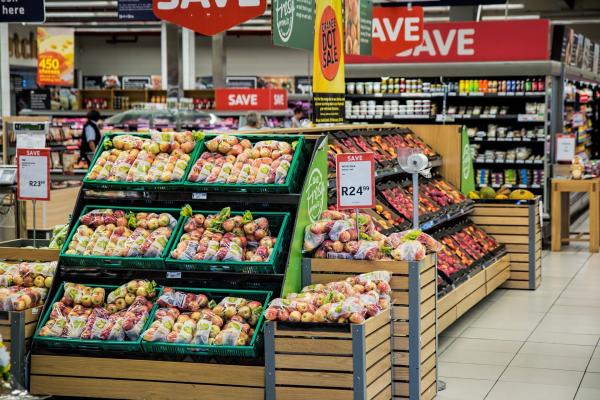Imagine for a moment that you're standing in the grocery store, choosing between two identical tomatoes. The only difference between them is price because one is certified organic and thus more expensive. Before you decide to purchase the cheaper option, you say to yourself, “I want to buy this tomato, but what if it gives me cancer?”
If this sounds like an absurd thought experiment to you, that's because it is. To the organic food champions at Natural News [1], though, this is actually a reasonable “profit/loss statement” you should calculate because consuming “GMO foods,” while cheaper in the short run, causes cancer and ultimately results in expensive medical bills:
“Let’s take an inside look at just how much money you’re really saving on the food you buy that’s not organic or at least non-GMO certified. Then, we’ll compare those ‘savings’ to the co-pays for cancer treatments (if you even have coverage), loss of job time, hospital time, loss of time with your family, plus the loss of longevity. We’ll run it like a profit/loss statement for a business and see how you fare.”
Speaking of your valuable time, you should do anything else with it than this silly calculus; read a good book, hit the gym, hug your kids - literally anything else. But because Natural News has a large audience (this article has roughly 5,000 views as of this writing), let's go through their profit/loss statement and poke holes in the underlying assumptions to illustrate why conventional food choices don't boost your cancer risk.
“GMO means scientists have embedded toxic genes from plants and animals into human food (crops and produce) to kill worms, beetles and weeds in order to make more money, with no regard to the consequences of human health.”
“GMO” stands for “genetically modified organism,” It's a colloquialism for plants, animals, or microbes that are transgenic or contain DNA from other species. That's it. The first generation of genetically engineered (GE) crops, introduced in the mid-1990s, were insect- and herbicide-resistant plant varieties. But dozens of foods, many cheeses, for example, are made from GE ingredients and don't contain “toxic genes.” Transgenesis is just a useful tool in food production; there is nothing uniquely harmful about it.
“These GMO poisons include ones that dissolve your insides slowly, causing IBS, ulcers, polyps, skin cancer, tumors, and other aggressive cancers.“The FDA and CDC are in on the scam of poisoning Americans slowly with GMO foods …. The “food safety” tests they run are deliberately inadequate and inaccurate.”
All these statements are false. No fewer than three federal agencies (EPA, USDA, FDA) share regulatory oversight of GE crops. New plant varieties routinely undergo an FDA-administered safety assessment to ensure they're “substantially equivalent” to their non-GE counterparts. Skeptics like to claim this process is voluntary, implying that 'Big Ag' is subject to very little oversight. But this, too, is misleading. As former FDA scientist Henry Miller explained in an email,
“It's a 'voluntary' consultation in the same way that it's voluntary for you to give your wallet to a mugger when he points a gun at you and says, 'Your money or your life.'”
This is because the FDA can pull any food it regulates off the market if the product is deemed harmful. And it's better to discover a potential problem before you get to that stage.
Moreover, any transgenic plant containing a pesticidal trait, say Bt corn engineered to kill insects, is subjected to additional “extensive studies examining numerous factors, such as: risks to human health ….” the EPA says. The studies regulators rely on are often validated by later research, which has consistently failed to find a link between GE crops and cancer in rats, let alone in humans. No other unique health risks associated with biotech crops have materialized either.
All in all, on about a $100 grocery run, you will spend about $80 more for organic foods. Let’s say you do that every week, every month, every year for 20 years. That’s $83,000 more you spent to buy organic food and beverages for two decades.
Given the dearth of evidence Natural News provided, that's $83,000 too many. Instead, buy nutritious food you can afford and spend the rest of your money on something else. Books, gym memberships, time with your kids—literally anything else.
[1] A notoriously unreliable “health news” site, whose founder once encouraged his followers to murder scientists




